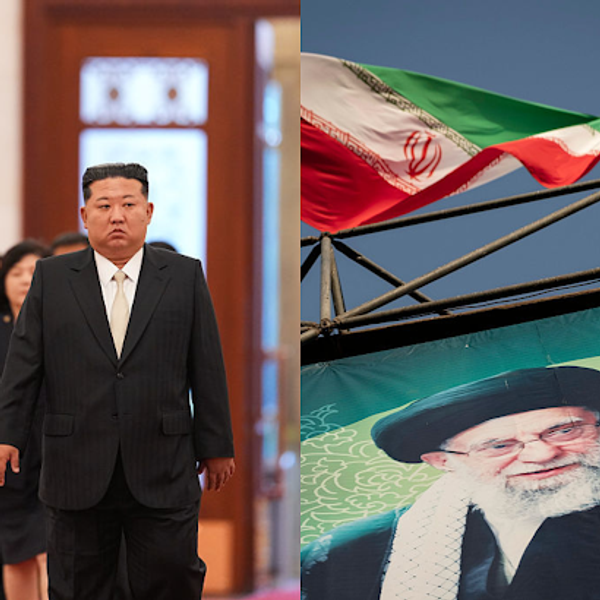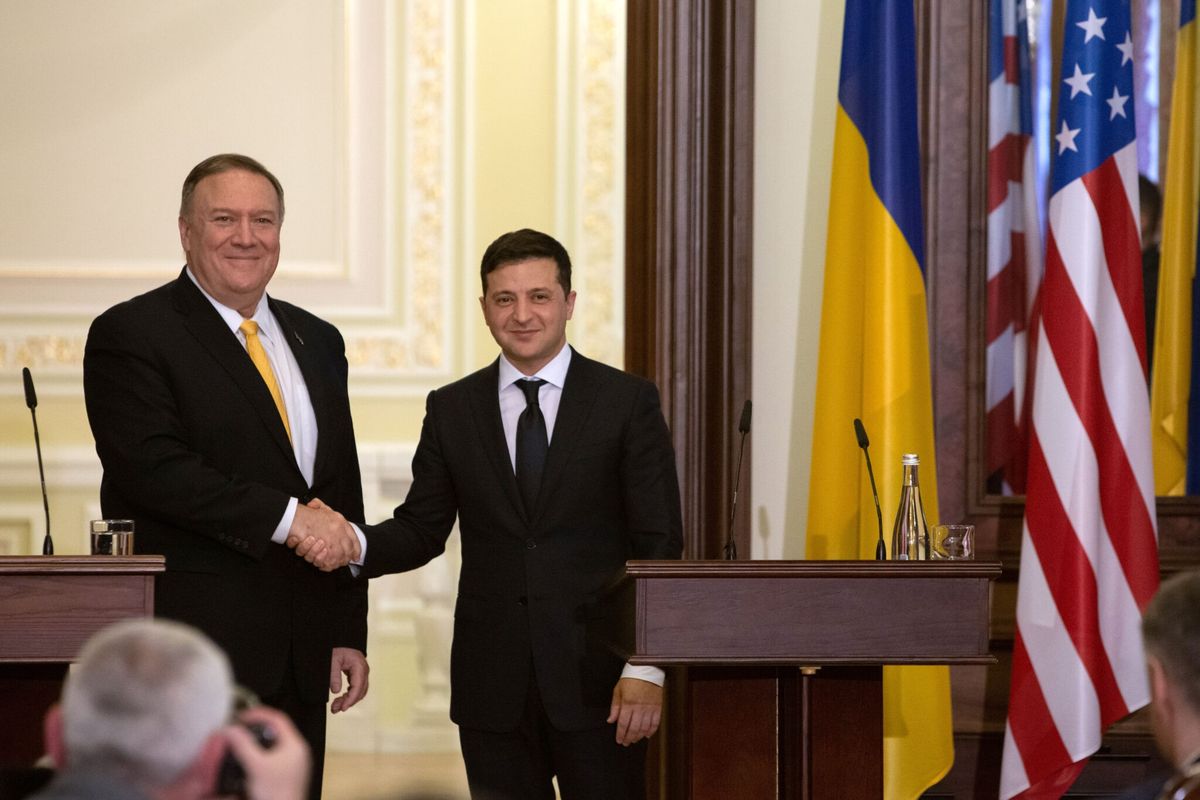Joint Chiefs Chairman Gen. Joseph Dunford set out his views on key national security issues last Tuesday during the Senate Armed Services Committee’s confirmation hearing for his second, two-year term in that position.
Remember, as you read this, Dunford is by law the principal military advisor to President Donald Trump, Defense Secretary James Mattis, and the National Security Council.
Current assessment of the North Koreans:
“The political space is clearly very charged right now,” Dunford said, but “we haven't seen a change in the posture of North Korean forces. We watch that very carefully. We clearly have postured our forces to respond in the event of a provocation or conflict…We also have taken all proper measures to protect our allies, the South Koreans, the Japanese, the force, as well as Americans in the area.”
He repeated, “But what we haven't seen is military activity that would be reflective of the charged political environment.”
Messaging to North Korea:
“We do not have military-to-military communications with North Korea right now,” Dunford said. He added that he “had been very careful at the military level to make no statements that would exacerbate the current crisis,” saying he wanted “to ensure that the lead [for messaging to Pyongyang] is Secretary [of State Rex] Tillerson.
“I certainly won’t comment on things that our senior political leadership have said,” Dunford added. That was a not-so-veiled reference to President Trump’s repeated military threats. Trump’s latest, on Sunday, came in a tweet where he said Tillerson was “wasting his time trying to negotiate with ‘Little Rocket Man’” and warning, “we’ll do what has to be done.”
Dunford did say, “There are military options available to the president if the economic and diplomatic pressure campaign fails,” and “we think that's important, that North Korea understand that. We also think it's important that China understand that. And I personally went to China in the middle of August, during the recess, to deliver that message to Chinese senior leadership.”
Kim Jong-un’s reason for wanting a nuclear-armed ICBM:
“My assessment, based on the intelligence that I've read, is that Kim Jong-un's development of nuclear capability and his development of missile technology is primarily associated with regime survival,” Dunford said. Kim poses “a threat to South Korea and to others in the region, but my judgment is that that is what has driven his path of development over the past 18 months,” Dunford added.
“If Kim Jong-un feels his regime is under attack, then the unthinkable happens,” Dunford said.
The result of any pre-emptive strike against North Korea:
“Part of the advice that I've provided to date is, when we do something, we shouldn't assume at that point that we can control escalation. So we need to – we need to think about this in terms of what might happen, as well as what we would want to happen,” Dunford said. “The greater Seoul area, which has 25 million people – 250,000 Americans, on any given day, would be in Seoul – would certainly be threatened by the [North Korean] rockets and missiles along the border,” he added.
Inevitability of Kim Jong-un getting a nuclear armed ICBM:
“Whether it's 3 months or 6 months or 18 months, it is soon, and we ought to conduct ourselves as though it is just a matter of time, and a matter of very short time, before North Korea has that capability.”
Missile defense against North Korea:
“Over [the] last seven or eight weeks, we did a very detailed look at increasing ballistic missile defense capability for the North Korean threat…Based on the current capacity of the North Koreans, the current threat – so both the type of the threat and the amount – and the amount of missiles that they possess, we can protect Hawaii today against an ICBM. We can protect the continental United States against an ICBM.” Dunford said.
He added, “I think one of the issues that we all ought to appreciate is that, as the capacity of the threat increases – that is the size, not just the lethality…but the numbers of missiles that they may possess that can reach us – and what we need to be concerned about is ensuring that our ballistic missile defense capability keeps pace with that threat,” Dunford said. “We do think an increase is warranted,” he added, and pointed to an additional 21 missile interceptors added to the fiscal 2018 Defense Authorization Bill that just passed the Senate.
U.S. intelligence on North Korea:
“The North Koreans, over time, have buried much of their capability underground, which creates unique challenges. There's also some specific weather challenges in North Korea that limit our collection at various periods of time…Certainly, over the last 18 months, we have increased our collection against North Korea.” However, Dunford admitted, “For a long period of time, we had decreased our collection against North Korea because of competing demands elsewhere in the world.”
The major U.S. effort against North Korea is diplomatic at this moment:
“It absolutely is,” Dunford said, adding, “The military dimension today is in full support of the economic and diplomatic pressure campaign the secretary of state is leading in North Korea.”
Getting better cooperation from China and Russia on North Korea:
“I don't think there is, at this point, a military dimension to the challenge of getting better cooperation from Russia and China,” Dunford said. “I do believe that the things that Secretary Tillerson has proposed to do, and what [Treasury] Secretary [Steven] Mnuchin has implemented over the past couple months, may be affecting the calculus of Russia and China, although I think we're a long way from determining whether or not the path we're on will result in peaceful denuclearization, which, of course, is what we all want to see.”
Lack of a U.S. ambassador in South Korea harms diplomacy in the region:
In effect, Gen. Vincent Brooks, commander of U.S. Forces Korea, informally is doing double-duty, according to Dunford. He said Brooks “sits there at the nexus of the political military,” adding, “I have clearly heard Secretary [of State] Tillerson also comment on the difficulty he has, right now, doing all the things the State Department's been called upon to do with some of the gaps [at State] that continue to exist.”
A relationship between the Iran nuclear agreement and negotiations with North Korea:
Dunford said, “It makes sense to me that our holding up agreements (referring to the one with Iran) that we have signed, unless there's a material breach, would have an impact on others' (such as North Korea) willingness to sign agreements.”
The need to eliminate sanctuaries for the Taliban and other groups in Pakistan:
“I do not believe that we can attain our objectives in Afghanistan…unless we materially change the behavior of Pakistan,” Dunford said, describing that as “the key issue.” He added, “It's unacceptable that Pakistan provides sanctuary, and we ought to bring the full weight of the U.S. government and our coalition partners on Pakistan to ensure that they do not provide the sanctuary that they have provided historically to groups like Haqqani and the Taliban.”
Support of lethal defensive arms to Ukraine:
“In my judgment, from the military perspective, the Ukraine needed additional capabilities to protect its sovereignty,” Dunford added that he, as well as the State Department, had recommended lethal defensive weapons transfers to the president. “That decision is at the White House,” he said, and the Pentagon has been seeking an answer on whether it will be approved “for the last couple weeks.”
The impact on training of the 2011 Budget Control Act caps:
When Committee Chairman Sen. John McCain (R-AZ) noted, “Our non-combat casualties and fatalities are now higher…than [those] in combat,” Dunford responded, “they are.” He then explained, “I would attribute that to two things. I mean, one, it's the material condition that does affect the numbers of hours that a pilot flies, a driver drives, so forth. It's also the size of the force relative to the requirements that we have.”
Dunford then added, “While we may have trained to standard in the past, when we had sufficient time and resources, now, we're training to time, because that ship is going to go to sea, that pilot is going to go to war, that infantryman is going to go to war, whether or not they've had an opportunity to retrain, sometimes, in the basic tasks or not.”
The need to improve military cyber operations:
“We need to adapt the U.S. military – really, the entire U.S. government – to be able to compete at that level below war, where the Russians have so successfully integrated information operations, cyber, political influence, economic coercion and information operations,” Dunford said. “Today, Russians, Chinese and others are…conducting adversarial competition at a level that falls below conflict. And they've integrated the entire government to be able to do that…In my judgment, we need to improve our ability to compete in that space. And the area specifically I'd mention, from a military capability, would be our electronic warfare capability, our cyber capabilities and our information operations capability.”
“The most significant threat in cyberspace we face today — the most advanced capabilities are the Russians'. That's our assessment,” he added. “Even with an overall weak hand, they've been able to effectively advance their interests without going to war.”
The Trump administration funding cuts in the Department of State and USAID:
“There's no challenge, that I'm currently dealing with, that the primary factors in our success won't be diplomatic and economic,” Dunford said. “USAID plays a critical role in stabilization, to secure the gains that our partners are making on the ground in Syria and Iraq, as one example. But, every place I've been over the past 15 or 16 years, in Iraq and Afghanistan, a key partner has been USAID.”
Preparing for future wars:
“If you take a look at our exercise and experimentation program, it is focused on our ability to deal in a very complex, dense urban terrain. I think all of us have looked at the demographics. We've looked at where people will live, we looked at where the sources of conflict will be, and preparing ourselves accordingly to do that,” Dunford said.
“There are some unique challenges in megacities. Command and control is one of those challenges; intelligence, surveillance and reconnaissance is one of those challenges; minimizing collateral damage while delivering effective fires are one of those challenges. And those are all areas within the department that we are working on.”
What to do about transgender service personnel:
“I believe any individual who meets the physical and mental standards, and is worldwide deployable and is currently serving should be afforded the opportunity to continue to serve,” Dunford said, adding, “what I've just articulated is the advice I've provided in private, and I've just provided in public.”
At the opening of this hearing, Chairman McCain told Dunford that he serves not just as the principal military advisor to the President, but also to Congress. McCain said, “As part of the confirmation process, we ask current and future chairmen, like all military officers, to provide their best personal advice to this committee, if asked.”
Dunford last week certainly did his part. Now it’s up to Congress to do theirs.












